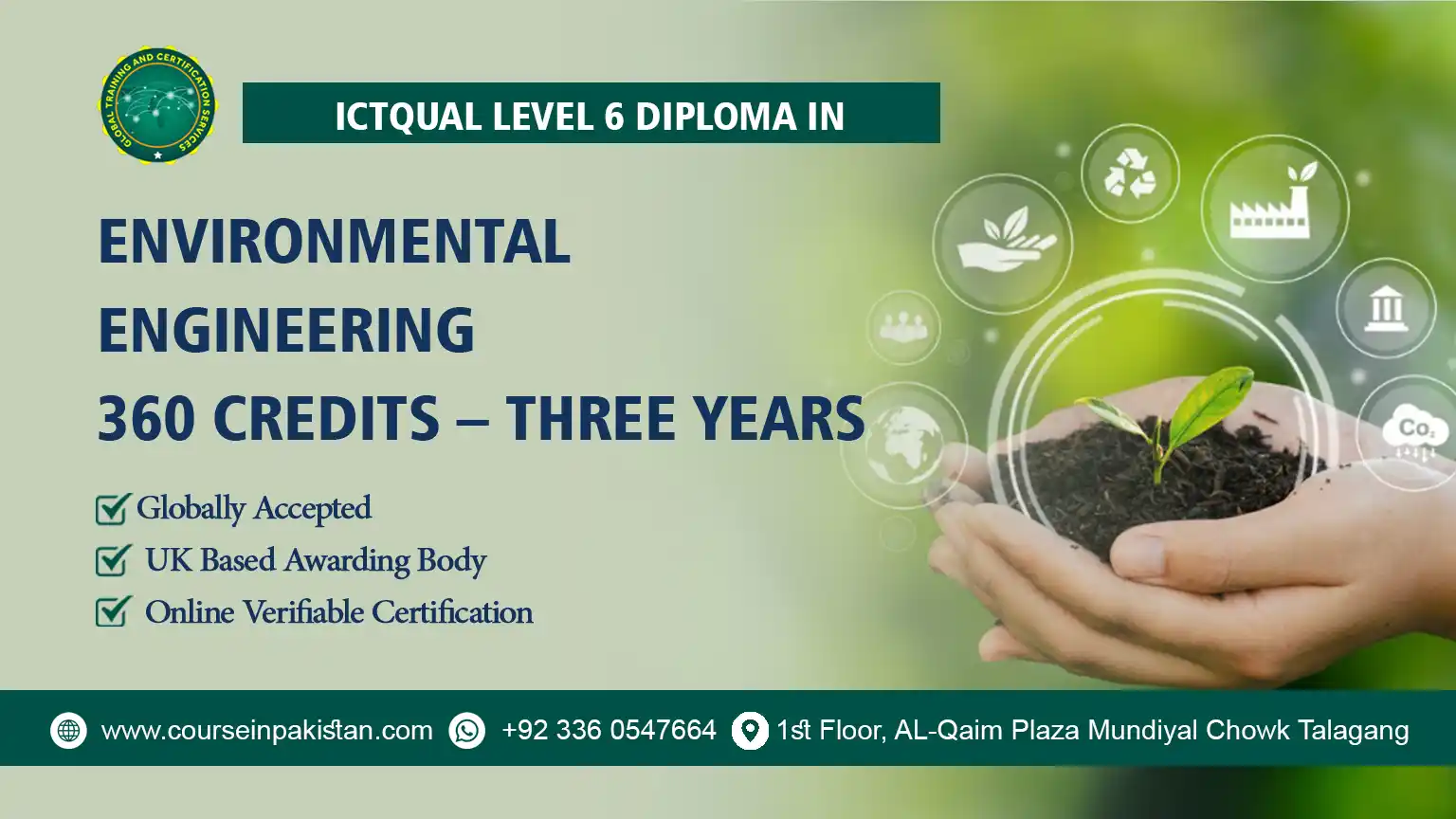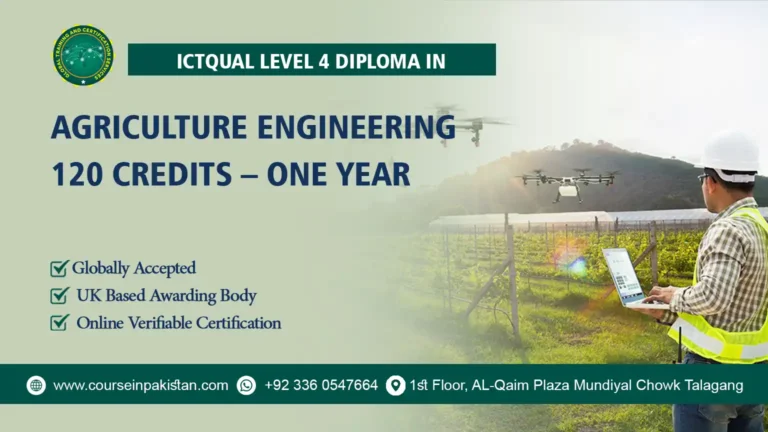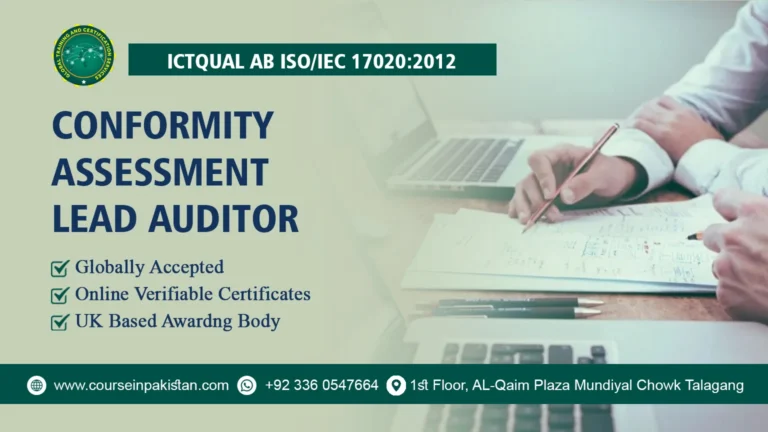
Environmental challenges are at the forefront of global concerns, driving the demand for skilled professionals to create sustainable solutions. The ICTQual Level 6 Diploma in Environmental Engineering (360 Credits) offers a comprehensive education for those passionate about tackling environmental issues through innovative engineering practices. This program equips learners with the expertise needed to address climate change, manage natural resources, and develop sustainable technologies.
Course Introduction
The ICTQual Level 6 Diploma in Environmental Engineering is designed to prepare learners for a rewarding career in this critical field. This qualification combines theoretical insights with practical applications to empower individuals with the tools to create real-world environmental solutions.
Course Overview
The diploma focuses on a blend of engineering principles and environmental science, ensuring learners gain a deep understanding of both technical and ecological aspects. The curriculum emphasizes sustainability, renewable energy, pollution control, and resource management, aligning with global environmental priorities.
Key Highlights
- Comprehensive exploration of environmental systems and challenges
- Hands-on experience with cutting-edge environmental technologies
- Insight into policies and regulations governing environmental engineering
- Emphasis on innovation and sustainability practices
Benefits of the Course
- Industry-Relevant Skills: Learn techniques and practices aligned with current environmental engineering demands
- Global Opportunities: Prepare for careers in industries, government agencies, and international organizations
- Sustainability Focus: Gain expertise in developing and implementing eco-friendly solutions
- Practical Learning: Engage in projects addressing real-world environmental challenges
- Academic and Career Growth: Lay the groundwork for advanced studies and leadership roles in environmental engineering
Course Study Units
The ICTQual Level 6 Diploma in Environmental Engineering includes a diverse set of study units, ensuring a robust understanding of the field:
- Year 1: Foundations of Environmental Engineering
- Introduction to Environmental Engineering
- Environmental Science Principles
- Basics of Environmental Chemistry
- Introduction to Renewable Energy Systems
- Mathematics for Environmental Engineers
- Engineering Mechanics and Materials
- Introduction to Fluid Mechanics
- Pollution Control and Prevention
- Environmental Regulations and Standards
- Soil Science and Geotechnical Engineering
- Introduction to Sustainable Development
- Communication Skills for Engineers
- Year 2: Specialized Environmental Engineering Topics
- Advanced Water Supply and Wastewater Treatment
- Air Pollution Control and Management
- Waste Management and Recycling Techniques
- Hydrology and Water Resources Management
- Advanced Renewable Energy Technologies
- Environmental Impact Assessment (EIA)
- Risk Management in Environmental Engineering
- Environmental Economics and Policy
- Sustainable Infrastructure and Urban Planning
- Climate Change and Environmental Adaptation
- Environmental Data Collection and Analysis
- Environmental Project Management
- Year 3: Advanced Studies and Practical Applications
- Sustainable Resource Management
- Advanced Environmental Chemistry
- Energy Efficiency and Green Technologies
- Environmental Monitoring and Data Systems
- Life Cycle Assessment and Eco-Design
- Green Building and Construction Techniques
- Environmental Biotechnology
- Environmental Law and Ethics
- Research Methodology in Environmental Engineering
- Environmental Engineering Design Projects
- Industrial Internship in Environmental Engineering
- Research Project and Dissertation
Learning Outcomes
Upon completing this program, graduates will be able to:
- Analyze and address complex environmental engineering problems
- Develop sustainable solutions for energy, water, and waste systems
- Design and implement strategies for pollution control and resource management
- Evaluate environmental policies and their impact on engineering projects
- Lead projects focusing on ecological restoration and climate resilience
Who Is This Course For?
The ICTQual Level 6 Diploma in Environmental Engineering is ideal for:
- Aspiring environmental engineers seeking specialized qualifications
- Professionals aiming to transition into sustainable engineering roles
- Engineers and technicians wishing to broaden their expertise in environmental technologies
- Students passionate about addressing global environmental challenges
Future Progression
Career Opportunities
- Environmental Engineer
- Renewable Energy Specialist
- Pollution Control Officer
- Climate Change Analyst
- Sustainability Consultant
Academic Pathways
- Progress to a Level 7 qualification or a master’s degree in environmental engineering or related disciplines
- Specialize in niche areas such as renewable energy systems, environmental policy, or ecological design
- Obtain professional certifications and work towards becoming a chartered environmental engineer
Conclusion
The ICTQual Level 6 Diploma in Environmental Engineering (360 Credits) is your gateway to a fulfilling career in one of the most impactful fields of the 21st century. With a strong focus on sustainability and innovation, this program equips learners with the skills and knowledge to drive positive environmental change.
Take the first step toward making a difference. Enroll in the ICTQual Level 6 Diploma in Environmental Engineering today and shape a sustainable future.






